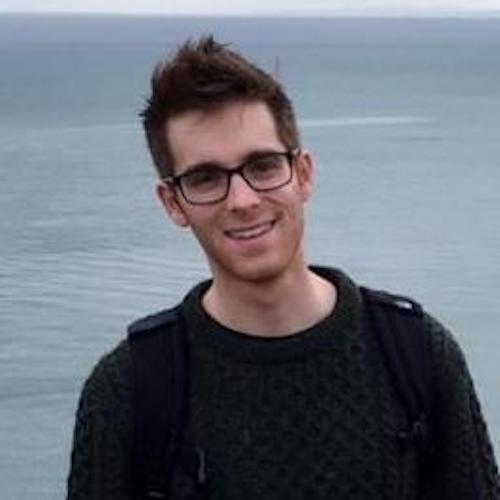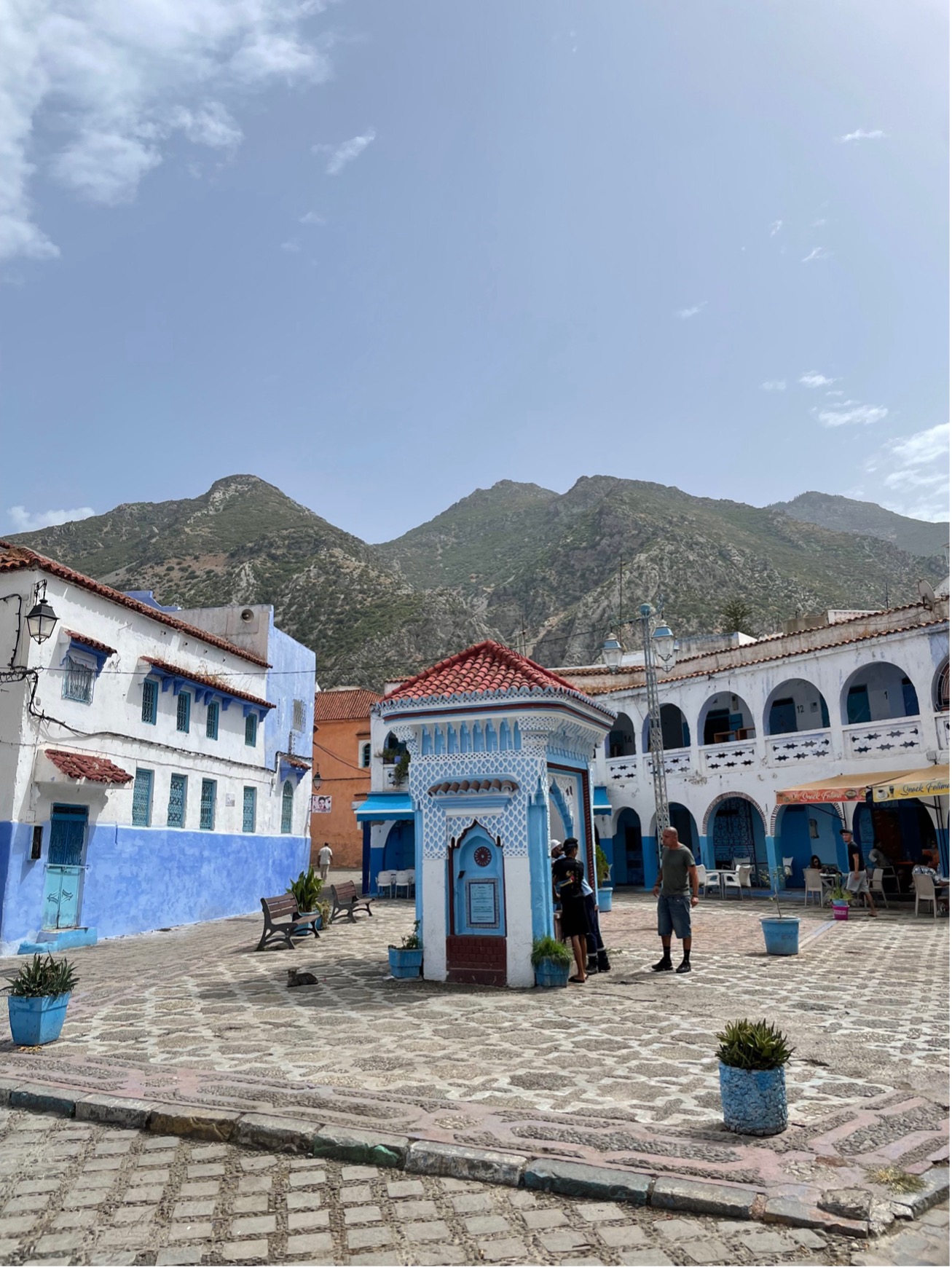 Thanks in part to a Kellogg PhD Fellowship, Bill Kakenmaster, a doctoral student studying comparative politics, has been able to bring forward some interesting findings on the topic of renewable energy in authoritarian regimes, an understudied topic in the social sciences.
Thanks in part to a Kellogg PhD Fellowship, Bill Kakenmaster, a doctoral student studying comparative politics, has been able to bring forward some interesting findings on the topic of renewable energy in authoritarian regimes, an understudied topic in the social sciences.
“Climate change is the most important environmental problem that we as a species have faced collectively, and authoritarian regimes on average now contribute more to climate change than democracies,” says Kakenmaster.
Funded by a Kellogg Institute Graduate Research Grant, he traveled to Morocco in the summer of 2024 to conduct fieldwork for his dissertation, “Decarbonizing Dictatorship: Explaining Climate Action in Nondemocracies.” There he interviewed local politicians, scientists, business leaders, members of parliament, and other energy transition stakeholders.
“Morocco is important because it’s an unlikely case for climate change action,” says Kakenmaster. “The existing literature doesn’t predict much public goods provision or climate action in autocracies in general, yet here you have this country, Morocco, which is not only an autocracy, but also a developing economy, so it is constrained in the economic resources that it can invest in renewable energy transition, and yet it is regularly recognized as a climate leader.”
Kakenmaster’s research finds that some countries governed by authoritarian regimes like Morocco are better equipped to tackle climate change than others because of how their institutions work. “In 2009,” he says, “the King announced major reforms designed to expand renewable energy after consulting extensively with members of parliament and royal advisors. Instead of one dictator holding all the power, there’s a lot of coordination over climate policy in Morocco.”
 In 2024, Kakenmaster published a paper, “The Fossil-Fueled Roots of Climate Inaction in Authoritarian Regimes,” in Perspectives on Politics, which explores why some authoritarian regimes contribute more to climate change than others. What he found echoes his on-the-ground experience in Morocco. He says, “It’s better for the climate when leaders of authoritarian regimes have to coordinate with other ruling elites, especially when there are strong oversight institutions in the country that hold them accountable.” Kakenmaster hopes this research will reach scholars and policymakers to drive forward the conversation about how institutions in democracies and nondemocracies can promote renewable energy and reduce emissions.
In 2024, Kakenmaster published a paper, “The Fossil-Fueled Roots of Climate Inaction in Authoritarian Regimes,” in Perspectives on Politics, which explores why some authoritarian regimes contribute more to climate change than others. What he found echoes his on-the-ground experience in Morocco. He says, “It’s better for the climate when leaders of authoritarian regimes have to coordinate with other ruling elites, especially when there are strong oversight institutions in the country that hold them accountable.” Kakenmaster hopes this research will reach scholars and policymakers to drive forward the conversation about how institutions in democracies and nondemocracies can promote renewable energy and reduce emissions.
The Kellogg PhD Fellowship, which provides five years of supplemental financial support, factored into Kakenmaster’s decision to attend the University of Notre Dame and has helped support his doctoral research along the way. But he first heard of Kellogg during an undergraduate study abroad year at the University of Oxford, where he read research from Kellogg Director and Faculty Fellow Aníbal Pérez-Liñán, Kellogg Faculty Fellow Scott Mainwaring, and former Kellogg Faculty Fellow Guillermo O'Donnell for a class on politics in Latin America. His tutor for that class, Malu Gatto, would later become a Kellogg Visiting Fellow.
“That’s what really turned me on to the Kellogg Institute – that amazing research, the depth of thinking, the clarity with which the researchers presented such complex ideas around democracy and human development in a digestible package was really appealing to me from an intellectual perspective,” he says.
Since beginning his doctoral studies at Notre Dame in 2020, Kellogg has been a source of intellectual community and inspiration for Kakenmaster. In particular, he says his advisor, Kellogg Faculty Fellow Debra Javeline, has provided indispensable feedback on his research, connections in academic networks, and conference support.
“In addition to the financial benefits, the PhD fellowship stipend, support for research, and support for travel, what really distinguishes Kellogg from other institutions is that sense of community,” he says. “Truly an incredibly rigorous and stimulating intellectual community combined with such a friendly and collegial atmosphere. They’re a real force for good in the world in big and small ways.”
According to Lupe Ramírez, senior program manager of visiting fellowships and graduate student affairs, Kakenmaster has not only benefited from, but also enriched the Kellogg community.
“During his time at Notre Dame, Bill has been an active member and leader of Kellogg’s Comparative Politics Workshop, a graduate student-led space for participants to present their work and receive feedback from other students, faculty members, and Kellogg visiting fellows,” she says. “It’s an amazing interdisciplinary environment that engages people from all around the university with degrees in economics or sociology or other fields, so you can learn from people who you may or may not have had the chance to interact with before.”
Kakenmaster will defend his dissertation this spring and go on to conduct postdoctoral research at the Australian National University, where he will explore the role of credit export agencies in energy sector financing.
The Kellogg Institute for International Studies, part of the Keough School of Global Affairs at the University of Notre Dame, is an interdisciplinary community of scholars and students from across the University and around the globe that promotes research, provides educational opportunities, and builds partnerships throughout the world on the themes of global democracy and integral human development.





